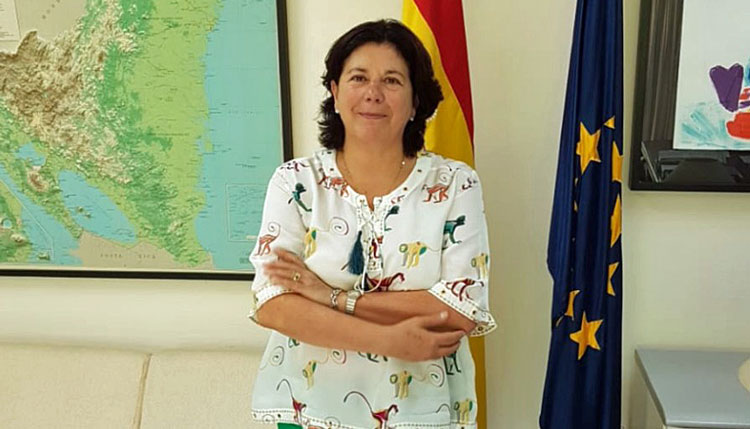Luis Ayllón
The Minister of Foreign Affairs, José Manuel Albares, yesterday recalled Spain’s ambassador to Managua, María del Mar Fernández-Palacios, for consultations, following the note issued on Tuesday by the Nicaraguan government in which “serious and unfounded accusations” were made against Spain and its institutions, according to a communiqué from the Diplomatic Information Office.
In the communiqué, the Spanish government “categorically” rejects the content of the Nicaraguan Foreign Ministry’s note, which, it stresses, includes “gross falsehoods about Spanish judicial and electoral processes”.
In its letter, Daniel Ortega’s government accused Spain of “meddling, interference and intervention” in Nicaragua’s internal affairs because of the communiqués issued in recent weeks critical of the Nicaraguan regime’s actions against opposition politicians and journalists, on the eve of the elections scheduled for November.
The Nicaraguan government claimed that Spain lacks “moral authority” and is guilty of “so many fallacies, cover-ups, lies, crimes, hate crimes and crimes against humanity, which they do not confess to, but which the whole world knows about and condemns”.
He then added that he would continue to “denounce the cynical and continuous meddling, interference and intervention in our internal affairs, unbecoming of democratic governments, unbecoming also of regimes that continually fail to respect the rights of their peoples to autonomy or autonomous processes of independence”.
He went on to denounce the “crimes against humanity, never investigated or judged, of the GAL in the 1980s and the “ferocious and brutal colonial and neo-colonial history” of Spain, and concluded by asking “how is it possible that, finally, these fools dare to give lessons in democracy, when they neither are, nor set an example, nor comply with truth and justice”. In fact, in the GAL trial, the Interior Ministry officials José Barrionuevo, Rafael Vera and Julen Elgorriaga, who were later pardoned, were prosecuted and convicted, but the actions of that group were never classified by the courts as crimes against humanity.
For all these reasons, the Spanish government has responded by recalling the ambassador for consultations as a measure of protest against accusations that it considers unfounded and erroneous, and which it categorically rejects.
At the same time, Spain demands that Nicaragua “comply with its international human rights commitments and its own constitutional precepts, guaranteeing the rights of all its citizens and free political participation”.
“Nicaragua has been going through a profound political, economic and social crisis for more than three years now, which has worsened in recent weeks as a result of the intensification of repression by the government of President Daniel Ortega against political and social actors of the opposition, as well as against independent media”, the Foreign Affairs communiqué states.
It also reiterates that “the decisions taken by the Government of Nicaragua to prevent the participation of the opposition in the general elections called for 7 November, together with the approval of a regressive legal framework, eliminate the due guarantees of the electoral process in the making and deprive its results of credibility”.
Spain and the EU have criticised the fact that 32 Nicaraguan opposition leaders and candidates have already been arrested and accused of treason, a way of preventing them from standing in the elections, leaving the way clear for former Sandinista leader Daniel Ortega to win a fifth term in office, the fourth in a row and the second with his wife, Vice-President Rosario Murillo. In addition, last Monday, the Nicaraguan Supreme Electoral Council cancelled the legal status of the opposition alliance Citizens for Freedom (CxL), which means that it will not be able to run in the elections.
The EU has already sanctioned fourteen people linked to the Ortega regime, including his wife and one of his sons, whose assets are frozen in EU territory and who cannot receive funds from European companies. In addition, they may not travel to or through EU territory.






